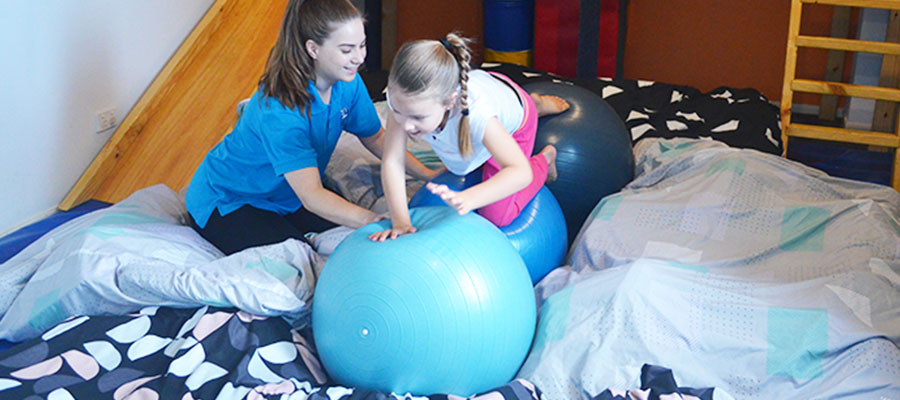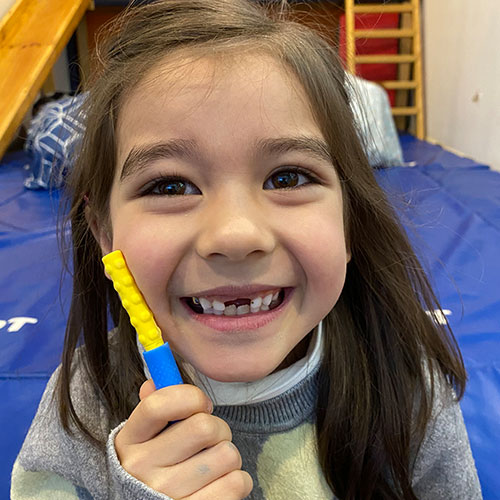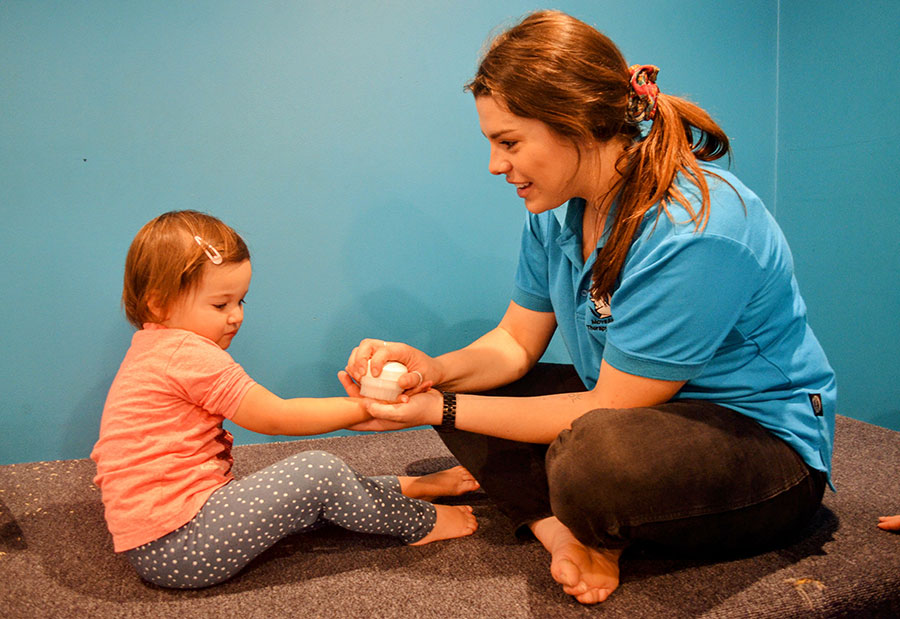Author: Kim Berry, Paediatric Occupational Therapist
8 min read
It will come as no surprise that I am a major advocate for engaging kids with occupational therapy. I am, after all, an occupational therapist.“
Kim Berry

Occupational therapy shouldn’t be taboo or scary. It’s actually an incredible science that sees little lives enhanced, often through play and strategically targeted day-to-day tasks. So, I wanted to explore this a little more, to help families really understand what occupational therapy is, and when kids can benefit from it.
When I see a new family, I want to understand what interests and motivates their child, and in what activities they find rich moments of engagement. At the same time, I want to connect with the child and family to learn whether their child has difficulties with day-to-day activities at home, school, or in the community. Do they experience challenges that their peers of similar ages do not? It’s in these situations that occupational therapy may be exactly what a child needs to support their next stage of development. This is the essence of paediatric occupational therapy – to enable kids to participate in the activities of everyday life and to help them to feel supported, safe and secure while they do them.
I work with a lot of families for a lot of different reasons because occupational therapy can support a broad range of developmental needs:
- Developmental delay
- Regulation challenges
- Fine motor skills
- Gross motor skills
- Visual processing
- Sensory processing
- Social interactions
- Learning difficulties
- Play skills
What to look out for: signs that your child might benefit from occupational therapy
Developmental delay
One of the things I love about every child I see is that they are truly unique. Not everyone grows and learns at the same pace or in the same way, and that’s the way it should be, however, there are key milestones that let us know a child is progressing in an expected way. When we talk about developmental delay, this means that a child is lagging in developing skills that are common during a particular age or during a particular time period. It really is more than just being a little behind the other children.
Emotional Regulation
This is our ability to adjust our alert level – to get our body ready for learning, cope with a stressful situation, and help ourselves feel calm. At a young age, we require more co-regulation support, such as a comforting hug or someone modelling a deep breath, from trusted adults in our lives (i.e. caregivers, teachers) to help us feel calm when we are upset, which helps guide us to learn how to self-regulate in order to manage our emotions. If your child has difficulty adapting to stress or getting themselves to a calm alert state ready for learning, they may need support to develop both their ability to self-regulate and accept co-regulation support.

Fine Motor Skills
These are the skills needed to make small movements with fingers, wrists, lips and tongue, like holding a small object or picking up a spoon. Our fine motor skills help us get dressed, hold a pencil and play with toys or puzzles – things we do every day, so it will often become apparent early on if your child has challenges in this area.
Keep in mind though that most of us don’t like doing activities that we perceive to be difficult, so some children avoid participating in fine motor skills and these fine motor challenges may not be noticed until they begin school.
Gross Motor Skills
Unsurprisingly, these skills are opposite to fine motor skills. It’s all about our larger muscle groups and the ability to move, balance and coordinate our body. Challenges with gross motor skills might be identified if a child’s walking milestone is achieved late or not at all, if they appear clumsy or trip more than expected. Sometimes challenges with gross motor skills are identified when a child is slightly older, because it’s tasks like navigating stairs, putting their left and right into practice and coordinating their body in sports that may highlight a difference in gross motor skills.
Visual Perception
This is all about the processes we use to make sense of the things we see. It is fascinating to consider that our brains all interpret visual information differently, so it’s no wonder difficulties sometimes go under the radar! This can present in a number of ways. From being unable to see a particular item within a group of objects, to being unable to store and recall visual information to identify shapes or letters, and having trouble copying work from the white board.
Sensory Processing
Would you describe your child as overly sensitive to smell and sound, or perhaps they experience strong emotional reactions and struggle to recover and calm themselves down? Sensory processing is the way our body identifies information through our senses, organises and responds to it. We experience the world through our sensations, therefore organisation of a variety of sensations is needed to adequately adapt to environmental demands and maintain an efficient alert level. Children with sensory processing difficulties can display a range of behaviours that impact their ability to attain and maintain a ‘just right’ level – from over-responsiveness (e.g. a heightened reaction to sensations), challenges coping with change, trying new things, or withdrawal from certain environments or activities that involve particular sensory qualities (e.g. getting their hair cut, messy play, feeding).
Social Interactions
These are the skills that help us establish relationships and understand those around us. Children who experience challenges with social connectivity may also present with difficulty maintaining attention and engagement in activities, picking up on social cues, participating in parallel play or games with their peers, and expressing how they feel.
Learning Difficulties
This is probably one of the more commonly understood reasons for a child seeking occupational therapy once they start school. Teachers will often refer children to us for a range of challenges that may not have been picked up on until they have entered a busy classroom setting: from difficulties with concentration, following instructions, and impulse control to struggling with the workload, low energy, difficulty learning new material or in handwriting tasks (such as making letter and number reversals, using an immature pencil grasp or having difficulties sitting at their desk). As OTs, we understand that working in partnership with teachers and educators is key in supporting children to better engage with their learning and to socially connect with those around them at school.
Play Skills
Imagination and play can help kids make sense of the world around them. It builds self-confidence, creates room for problem-solving and develops important social skills. If your little one is struggling in this area you might notice they need adult guidance to initiate or remain in play, perhaps they wander aimlessly, move quickly from one toy to the next, or don’t join in with peers and siblings at play.
So there you have it – paediatric occupational therapy in a nutshell! This has been a tiny snapshot of some of the reasons kids need occupational therapy.
It is important to remember that all kids are different and develop these skills at their own pace. However, if you think your child may be struggling with adopting some of the skills mentioned above, maybe it’s worth contacting an occupational therapist for an assessment… I happen to know a great one! 😉
For more information about developmental milestones or to make an enquiry about an assessment for your child, contact MoveAbout Therapy Services. You’ll be connected with a skilled, fun and compassionate OT.
GET IN TOUCH


